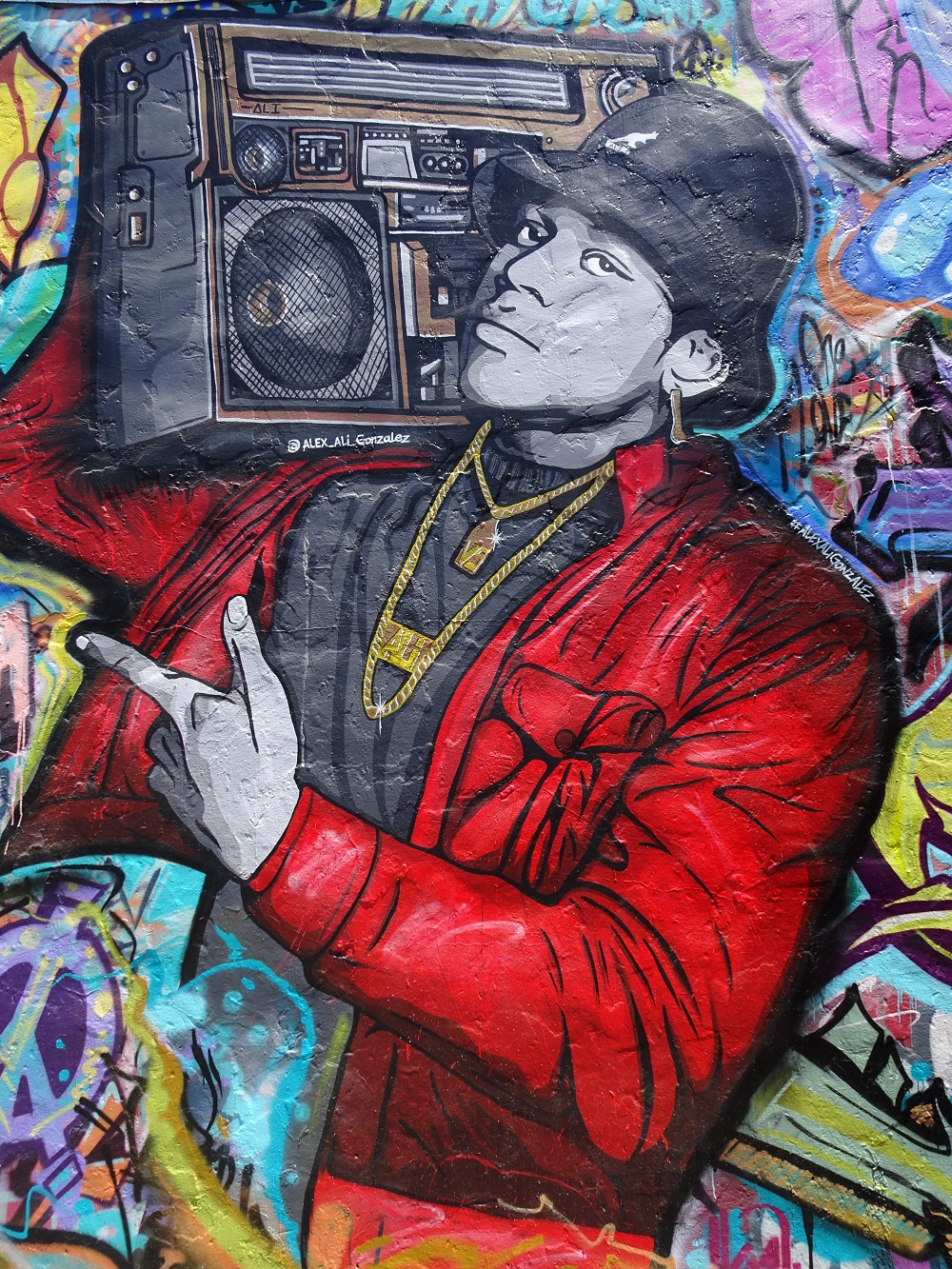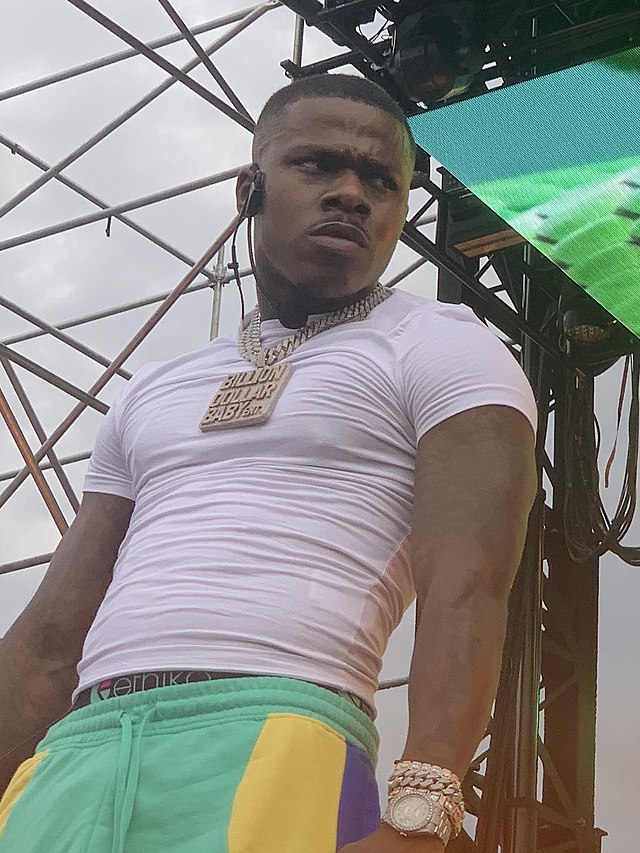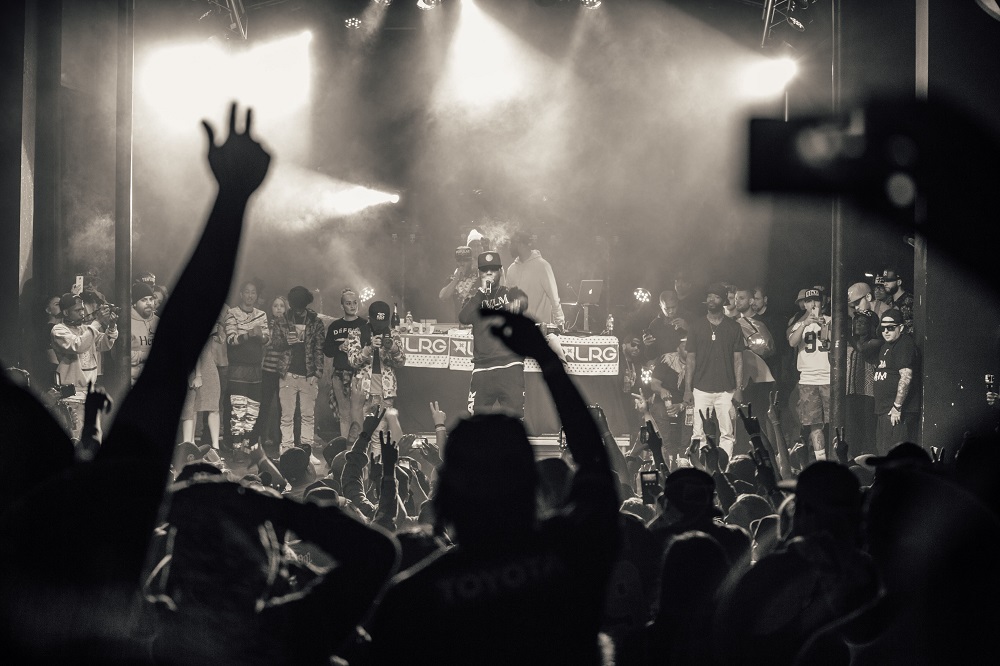By Veracia Ankrah
Posted on January 28, 2022

Hip hop culture was birthed in the South Bronx of New York by African Americans as a means of expression in underserved communities through DJing, breakdancing, graffiti art, clothing and of course, rapping. Hip hop’s inception challenged the systemic injustices that ran rampant in Black communities in the U.S, which left entire neighbourhoods poverty-stricken and facing all forms of systemic brutality. Once a culture shunned by the mainstream for its opposition to systemic oppressions, hip hop has transcended New York City and infiltrated the world. With growing recognition and acceptance comes new messaging that often deviates from the very notions hip hop, especially rap music, began; to fight oppressive systems that sustain capitalism.
Rappers in the late ’80s and early ’90s began to reap the benefits of the music industry and started earning high incomes for a culture that was once rejected. Major record labels identified the lucrativeness of Blackness and decided to capitalize on rap culture. In 2021, well-known rappers are some of the highest-earning entertainers in the world, and some of the most popular acts are often seen hoarding wealth far beyond their means and disregarding supporters of their artistry that play an integral part in their elevation and success. The latest example of this is rapper DaBaby’s viral video of his interactions with two Black boys selling candy to raise money for donations.
According to the boys, each candy bar sold for $2 or a generous donation of one’s choice. DaBaby decided to have the incident recorded but used the moment to provide the kids with an unsolicited math and morality lesson. There were two boxes and each candy box held 34 pieces, so DaBaby believed that to buy both boxes he owed them less than $100. The kids were asking for $400, claiming they’ve made more than the required amount daily, since beginning their fundraising venture. Instead of buying both candy boxes, DaBaby bought a few candies and said, “You got to use your head man. You tried to play me, I was going to bless you anyways. You was going to get the $200, now you got that two dollars.” As the boys walk away, DaBaby continues declaring that he also used to sell candy in elementary school and knew how fundraising initiatives worked on camera.

In the video, the kids seem enamoured by DaBaby’s celebrity status and may even be fans of his music. Perhaps they were trying to sell all their candy at once, knowing that DaBaby had enough money to end their sales for the day or they were trying to make some extra money. However, a famous rapper filming students and using the exchange as a mentor-to-mentee moment was uncalled for. On the other hand, aware of his affluence, it is understandable that DaBaby may have felt an added level of societal pressure to give more than a non-celebrity or person with less notable disposable income. Yet, neither of these explanations excuse DaBaby’s action of opening his Sprinter, asking the kids to step forward, having someone in his entourage film the transaction for social media, and humiliating the boys by asking them to make unsolicited sale pitches to generate a viral moment.
Oftentimes, rappers mistake their visibility and celebrity status for being experts on societal issues they have not acquired the range to discuss. When hip hop became the single most popular genre and culture, some rappers (who are mostly considered “conscious”) took on roles as political activists, spokespersons for social change, or people society should look to as ethical evangelists. Rapper, J.Cole, is known for speaking about the ills in society and he positions himself as an artist of the people. Cole went so far as to refer to Kanye West as a “False Prophet” to his supporters and the hip hop community, but years later took offence to rapper and activist, NoName, generally tweeting about how she believes rappers with large platforms are silent on political issues that affect their core audiences (i.e. police brutality and capitalism).
On the song “Snow On Tha Bluff”, Cole raps, “She mad at the celebrities, lowkey I be thinkin’ she talkin’ ’bout me […] But sh*t, it’s something about the queen tone that’s botherin’ me.” Cole also mentions that he is not above criticism but feels NoName’s approach is unforgiving to people who aren’t well informed, and that she should take the time to teach others. The issue with Cole’s statement is that it suggests that NoName, a Black woman rapper, is required to teach others; which perpetuates an archaic trope that holds Black women to an unachievable standard of moral high ground. What Cole fails to mention is that in the fight for liberation, everyone is responsible for doing the work to educate themselves–especially rappers that have built a highly recognizable platform in music using progressive political ideals.

Hip hop was created out of necessity as a means to give a voice to young African Americans who felt voiceless, and as a means of expressing the various beautiful cultures of Black people. Hip hop was also created to showcase resilience against the white supremacist, capitalist society that has harmed the Black community to date. Acquired wealth is not inherently negative as rappers also use their wealth to give back to their community and fight for social change. For example, Megan Thee Stallion donating $1 million to women entrepreneurs, Jay-Z and Meek Mill launching a prison reform organization that has raised nearly $50 million, and many other rappers leading community development initiatives to positively impact their communities using their newfound status. On the other hand, today, some rappers who no longer face financial oppression only seek to flaunt their money rather than continuing to speak up about the struggles of their communities and advocate for change.

